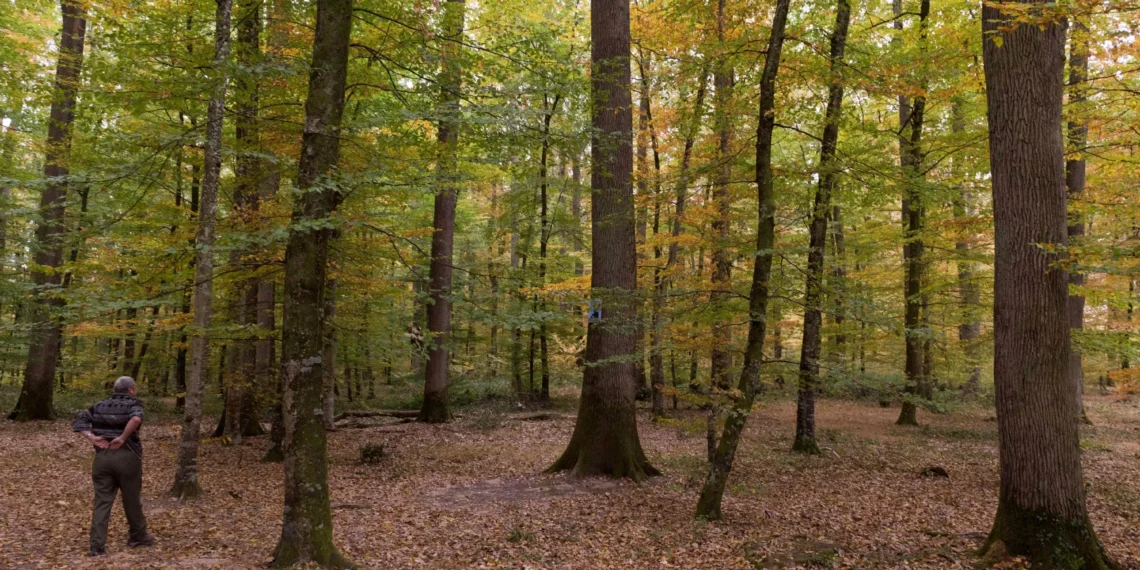In recent years, there has been a heightened awareness of the devastating effects of climate change on our planet. Governments and individuals around the world have been working hard to find solutions and implement measures to reduce carbon emissions and curb the rising temperatures. One of the natural ways to combat climate change is through our forests and other land ecosystems. However, despite their crucial role, these ecosystems failed to mitigate the effects of climate change in 2023.
One of the main reasons for this failure was the intense drought that plagued the Amazon rainforest. The Amazon, known as the “lungs of the Earth”, is one of the largest natural carbon sinks in the world. Its vast vegetation absorbs significant amounts of carbon dioxide from the atmosphere, helping to regulate the global climate. However, the prolonged drought in the Amazon in 2023 severely hindered this natural process.
The Amazon experienced a severe drought due to significant changes in rainfall patterns and deforestation. The lack of rain meant that the vegetation could not absorb carbon dioxide as effectively. Moreover, the rampant deforestation in the region further contributed to the reduction of the Amazon’s ability to curb climate change. Trees not only absorb carbon dioxide but also provide shade, which is essential to help regulate the local and global temperatures. With fewer trees, the Amazon became more susceptible to higher temperatures, causing a domino effect on the region’s ecosystems and amplifying the effects of the drought on climate change.
Another major setback in 2023 was the record-breaking wildfires in Canada. The country experienced extreme heatwaves in the summer, with temperatures reaching an all-time high of 49.6 degrees Celsius in Lytton, British Columbia. These conditions, coupled with strong winds, created the ideal environment for massive wildfires to spread, destroying vast areas of forestland. These wildfires released an enormous amount of carbon into the atmosphere, negating the efforts to reduce carbon emissions and adding to the already severe effects of climate change.
Moreover, the fires in Canada not only worsened the global climate but also had a significant impact on local communities. The dense smoke from the fires blanketed the cities, causing air pollution levels to reach dangerous levels. People with respiratory illnesses, such as asthma, suffered the most, and the fires even forced some communities to evacuate. This catastrophic event not only disrupted the lives of individuals but also highlighted the urgent need for more significant action to combat climate change.
Apart from the drought in the Amazon and the wildfires in Canada, other land ecosystems around the world also struggled to combat climate change in 2023. The prolonged dry spells and heatwaves reduced the productivity of agricultural land, leading to significant crop failures. This not only had a direct impact on food security but also added to the global carbon emissions as more land had to be cleared for agricultural purposes.
The failure of forests and other land ecosystems to curb climate change in 2023 serves as a wake-up call for all of us. While these ecosystems are incredibly resilient, they are not invincible. We cannot solely rely on them to mitigate the effects of climate change; we must take concrete and immediate action to reduce carbon emissions and protect our planet.
Individuals can make a significant impact by making simple changes in their daily lives, such as reducing their carbon footprint, using sustainable modes of transportation, and supporting companies that prioritize environmental sustainability. Governments also have a crucial role to play by implementing and enforcing policies that promote renewable energy and conservation efforts.
Furthermore, we must also address the root causes of climate change, such as deforestation and unsustainable land-use practices. By preserving and restoring forests, we can simultaneously reduce carbon emissions and protect biodiversity. It is essential to recognize that forests and other land ecosystems are not just carbon sinks, but also vital habitats for millions of plant and animal species that are facing extinction due to human activities.
In conclusion, it is evident that forests and other land ecosystems failed to curb climate change in 2023. The intense drought in the Amazon rainforest and record wildfires in Canada were two significant factors that hindered their natural ability to regulate the global climate. However, this should not discourage us but rather serve as a call to action. It is imperative that we all come together and take action to protect our planet for future generations. Let us not wait until it is too late; the time to act is now.






